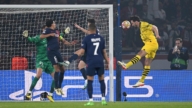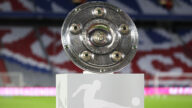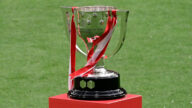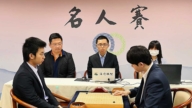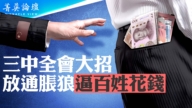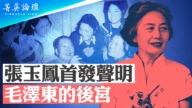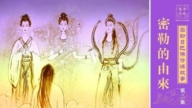【新唐人2012年8月1日讯】在伦敦奥运会举重男子56公斤级角逐中,朝鲜选手严润哲以293公斤的总成绩夺冠,中国选手吴景彪以289公斤的总成绩获得银牌。同样都是来自于共产国家,他们的获奖感言一个是感谢领导,另一就是愧对祖国。有分析认为,金牌、银牌只是代表比赛的名次,但是在媒体长期的渲染下,金牌被贴上了所谓“爱国”的标签。
伦敦奥运会男子举重56公斤级比赛,原本被寄予厚望的中国力士吴景彪最终以289公斤的总成绩名列第二。失去金牌的吴景彪被媒体形容为“痛苦坐地”、“泣不成声”、“鞠躬道歉”。
中国自由撰稿人刘逸明:“中国的媒体是党办党管,实际上就是说,中国的媒体算不上真正的新闻媒体,因为他不具备新闻媒体的一些基本职业道德,中国媒体最恰当的称呼就是党的喉舌,所以说呢,他们就会想方设法去迎合统治集团的口味,去报导一些官员喜欢看到的消息。”
同样成为讨论焦点的,还有女子53公斤级选手周俊,她因为三次试举失败而零分离场,创造了中国女举的最差成绩。被媒体称为“耻辱”、“失利”的周俊,黯然落泪。
六四人士方政:“国内的很多媒体,他通过奥运会比赛,去弘扬所谓的爱国精神,去凸显所谓的国家的力量,国家形象等等,反而去淡化了每个个人的自我的一种展现,个人价值这种事,中国现在这个问题也是很大,体制造成。”
毕业于北京体育学院的六四人士方政表示,这与国家政治制度有关,整个培养机制都对他们灌输运动员是属于国家的,换句话说,就是国家的面子工具。
六四人士方政:“从中国进入奥运会大门以后,强调的就是金牌挂帅,金牌第一,哪个运动员失误没有拿到应有的成绩,就如丧考妣那样觉得痛不欲生,好像天要塌下来了,这完全是一种扭曲的国家的一种状况,是一种扭曲的制度,导致队对奥林匹克运动的这种…,完全是一种亵渎。”
据报导,周俊的一张“白卷”背后,还反映出中国举重在选拔机制、省市平衡、补偿照顾等多方面、深层次的问题。
而有关伦敦奥运金牌的得失,网友也在网上热烈议论,有网友说,我明白供养庞大的官办体育机构和那么多职业运动员,是要花太多钱的,当一个国家还“老无所养、痛无所医”时,再多的金牌也证明不了你不再是东亚病夫。
还有网民在微博发起“不拿金牌一样是英雄”活动,呼吁各界对所有运动员一视同仁,不要逼他们夺金,并对中国为夺冠军,不惜动用全国资源训练运动员的体育体制大肆批评。
网友“蜜茶”说,咱们国家就是太“面子工程”了。而网友“阿班和小尼”则说,我己经对中国能得多少金牌,站在奖牌榜第几位毫无兴趣了,金牌的数量不能代表国民体育素质。
采访/田净 编辑/黄亿美 后制/郭敬
Gold Medals Define Heroism for China’s Olympians
In the London Olympic Men’s Weightlifting 56kg competition,
the Korean Yan Runzhe won the gold medal
with a total score of 293 kilograms,
and the Chinese Wu Jingbiao took silver
with a total score of 289kg.
Both hail from communist countries, and both acceptance
speeches mentioned the leadership of their respective nations,
the former thanking his homeland and the latter expressing
shame for letting his motherland down.
Some analysts believe that gold medals and silver medals
are simply awards for placing in a competition.
However, under long-term media rendering,
a gold medal has turned into a symbol of patriotism.
At the London Olympic Games, there were high hopes for China’s
Wu Jingbiao to win the men’s weightlifting 56 kg competition.
However, he placed second with a total score of 289 kg.
The media described his inability to cope as “painfully sitting
on the ground," “weeping," and “bowing to apologize.”
Chinese freelance writer Liu Yiming: “Chinese media is state-run.
In practical terms, the Chinese media are not real news media,
as they lack some of the basic professional ethics of
the news media.
It is most appropriate to call them, ‘the party’s mouthpiece.’
So, I say, they will find ways to cater to the ruling group
and to report something pleasing to the officials."
In the women’s 53 kg competition,
Zhou Jun has also become the focus of discussion.
She was disqualified after three failed attempts and ended with
a score of zero, which is the worst performance of the Chinese women weightlifting.
Media described her as a “disgrace.”
The defeated Zhou Jun shed many sad tears.
Fang Zheng of June 4 Massacre: “Many of the domestic media
spread patriotic spirit through the Olympic Games to highlight the so-called national strength and national image.
It waters down individual performance and personal value.
This is a serious problem in China, and it all stems from
the system.”
Fang Zheng, a graduate from the Beijing Institute of
Physical Education: “This has to do with the political system.
The training mechanism is to instill in athletes the belief
that they belong to the state, in other words, they are China’s face-saving tools.”
Fang Zheng: “Since China entered the Olympic Games,
the emphasis is gold medals, and gold medals come first.
Any athlete who fails to achieve a proper score is filled
with deep sorrow as if the sky had fallen down.
Such a distorted system is a sacrilege to the Olympic Games.”
According to reports, Zhou Jun’s score of zero also reflects
issues in the selection mechanism in China’s weightlifting,
balance between provinces and cities, compensation for
athletes’ care and many other deep-seeded problems.
The pros and cons about the Olympic gold medals in London
brought on heated discussions among Internet users.
One says that he understands the huge cost for the government
to support organizations and so many professional athletes,
but when a nation cannot “support its old or heal its sick people,”
no amount of gold medals can prove that it is not the weak, sick man from Asia.
On another microblog, one netizen initiated a “medal-less hero”
campaign calling on people to treat all athletes equally and not to force them to compete for gold medals.
The netizen also criticizes the system for utilizing national
resources to train athletes.
Netizen “honey tea" says, “Our country puts too much
emphasis on projects dedicated to saving face.
Another netizen says, “I have lost my interest in knowing
how many gold medals China can win.
The number of gold medals does not represent the quality
of our national sports.”


